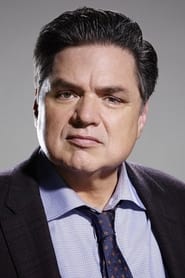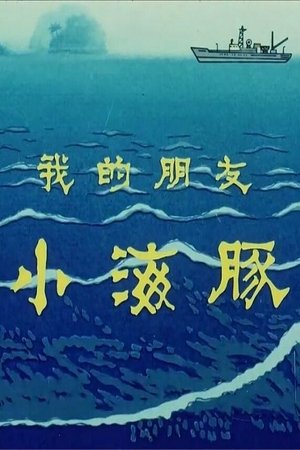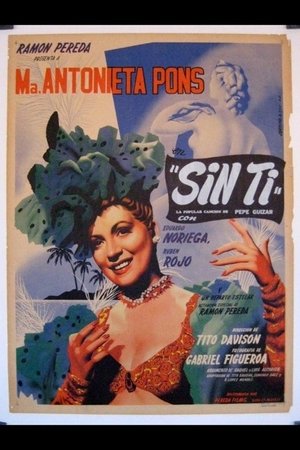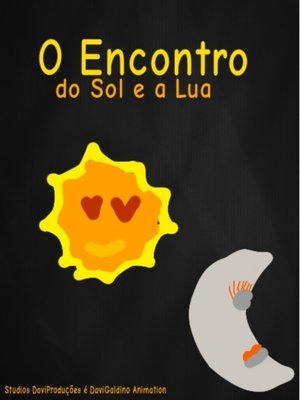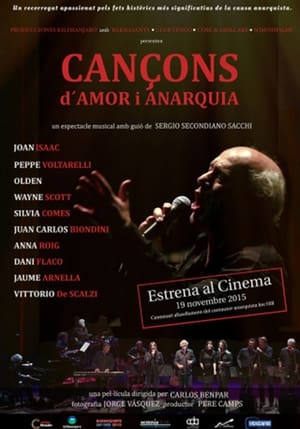
The Bombing of Wall Street(2018)
On September 16, 1920, as hundreds of Wall Street workers headed out for lunch, a horse-drawn cart packed with dynamite exploded in front of Morgan Bank — the world’s most powerful banking institution. The blast turned the nation’s financial center into a bloody war zone and left 38 dead and hundreds more seriously injured. As financial institutions around the country went on high alert, many wondered if this was the strike against American capitalism that radical agitators had threatened for so long.

Movie: The Bombing of Wall Street
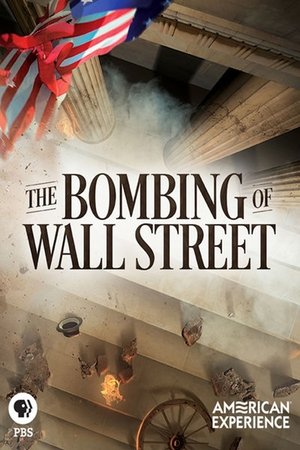
The Bombing of Wall Street
HomePage
Overview
On September 16, 1920, as hundreds of Wall Street workers headed out for lunch, a horse-drawn cart packed with dynamite exploded in front of Morgan Bank — the world’s most powerful banking institution. The blast turned the nation’s financial center into a bloody war zone and left 38 dead and hundreds more seriously injured. As financial institutions around the country went on high alert, many wondered if this was the strike against American capitalism that radical agitators had threatened for so long.
Release Date
2018-02-13
Average
7.5
Rating:
3.8 startsTagline
Genres
Languages:
EnglishKeywords
Recommendations Movies
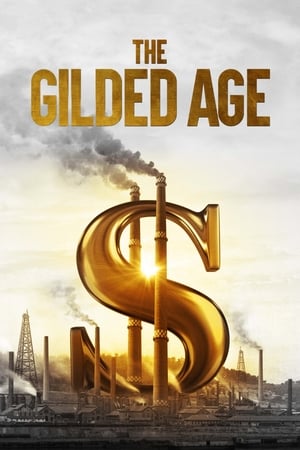 8.0
8.0The Gilded Age(en)
In the closing decades of the nineteenth century, during what has become known as the Gilded Age, the population of the United States doubled in the span of a single generation. As national wealth expanded, two classes rose simultaneously, separated by a gulf of experience and circumstance that was unprecedented in American life. These disparities sparked passionate and violent debate over questions still being asked in our own times: How is wealth best distributed, and by what process? Does government exist to protect private property or provide balm to the inevitable casualties of a churning industrial system? The outcome of these disputes was both uncertain and momentous, and marked by a passionate vitriol and level of violence that would shock the conscience of many Americans today.
99ème régiment d'infanterie : assaut du portique(en)
A regiment of soldiers demonstrate their skills.
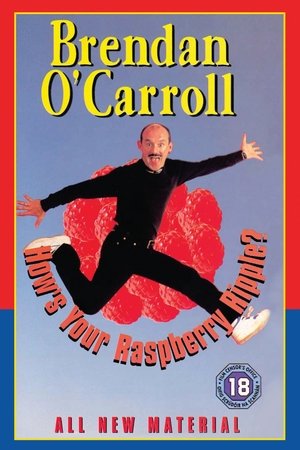 10.0
10.0Brendan O'Carroll: How's Your Raspberry Ripple?(en)
Recorded Live at the Olympia Theatre, Dublin When you remember that Brendan O'Carroll began his comedy career in his native city of Dublin - playing in pubs to maybe 100 people - then it puts into perspective this performance in the Olympia Theatre as he returns to the City by the Liffey to a record pre-sold 50,000 tickets. This show includes readings from his novel "The Mammy" and even Brendan singing his lovesong "How can I say I love you?"
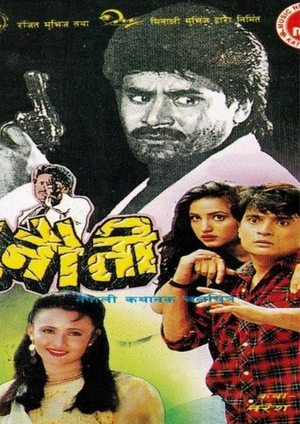 9.4
9.4Chunauti(ne)
Chunauti is an action-packed romantic comedy that tells a story of love, struggle, and justice. Ajaya and his wife Prabha move to Kathmandu, where Ajaya starts working as a teacher. Later, his sister Gita joins them and enrolls in the same college. There, she meets a kind and charming student, but trouble arises when Madhav, a troublesome student, also starts liking her. One day, a fight breaks out in the college, and when Gita tries to stop it, an inspector arrives and brings the situation under control. Angered by this, Madhav and his group cause harm to Prabha and Gita. They also try to escape punishment through legal means. With no strong evidence, Ajaya takes a stand and challenges the court. In the end, he decides to take justice into his own hands, leading to a tragic ending where the inspector, fulfilling his duty, stops Ajaya. Chunauti is a story of love, courage, and sacrifice in the face of injustice.
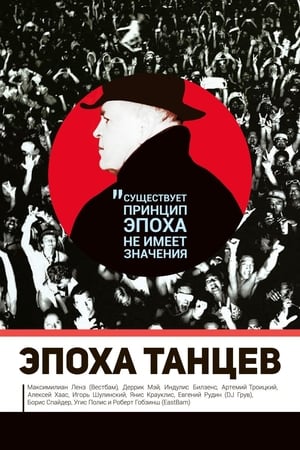 8.0
8.0Era Of Dance(ru)
The film tells a story about the latest musical revolution in recent history – the early days of the rave scene and the golden age of techno culture. International political changes in the mid-80s and early 90s, including the fall of the Berlin Wall and the collapse of the Soviet Union, in a short period of time allowed this cultural phenomenon to become a mass movement which was almost completely independent from the global corporations and which did not fight with the system but created its own system.
 6.0
6.0You(en)
Through new camera techniques never before attempted we are able to put your audience on the edge of their seats, gasping for breath through FEEL-A-VISION. Your audience will boast that in one night they were able to whip a young girl to her masochistic climax - feel the warmth of a young female hitchhiker's gratitude for giving her a ride - answer a voyeur's plea to endure his young wife's sensuous desires - be sucked into a back alley profession they only dreamed existed - be pulled into a religion that requires a witness to an act of awareness by two young female believers and finally to participate with them in the most bizarre rite of depravity - take pictures of a would be starlet in a celebrated model studio and for a few dollars more get exactly what they want - get anything they wanted from a young Mexican girl in trouble with the police in return for helping her escape.
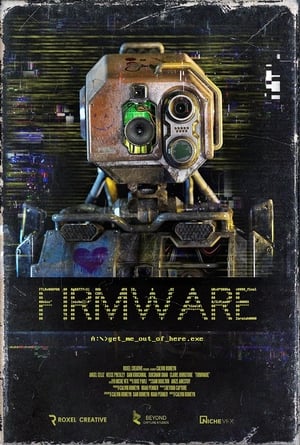 6.0
6.0Firmware(en)
A young woman and her decommissioned military droid struggle to escape a nuclear exclusion zone, hoping to find a better life on the outside -- free from the oppression of the forces that keep her there.
Istrione o figurante?(en)
Ironic comedy but with a message true and strong, harsh reality of the world of the show told in 3 minutes.
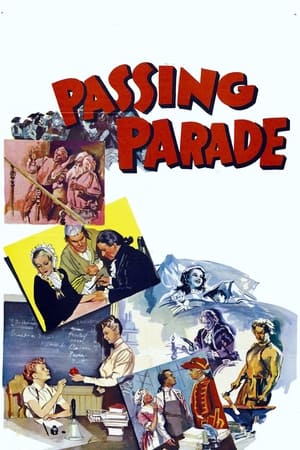 6.0
6.0Madero of Mexico(en)
This Passing Parade series short chronicles the political life of Francisco Madero, who tried to bring democracy and land reform to Mexico.
 7.0
7.0#Moscow on the Beach(fr)
Olga is a young woman who decides to change her life after an unexpected event. She wants to see if new technologies can help her makes her dreams true. Nothing better than letting the algorithms manage yours holidays for you.
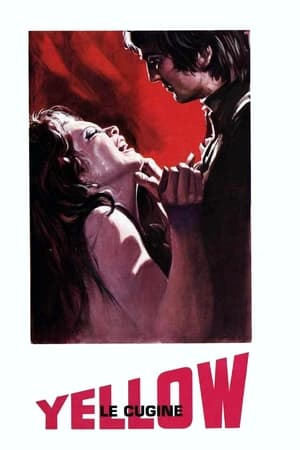 5.1
5.1Yellow: The Cousins(it)
Following the death of her grandfather, Valentina settles with her husband Pierre, a sculptor, in the old family villa which she partly inherited (half of it belongs to her cousin Marta, who already resides there). Co-habitation proves to be awkward: Valentina is unscrupulous and uninhibited, while Marta is austere and virtuous - at least, on the surface. In fact, when Valentina suddenly dies, the woman initiates a seduction which eventually coaxes Pierre into her arms. The cosy situation soon changes when a police officer turns up to investigate Valentina's death...
 4.0
4.0Tanda ng Pagtanaw(en)
The farmers of Caquilingan Farmers' Association (CFA) of Cordon, Isabela were wrongfully accused of an offense against a trumped case because they tried to defend their lands from greedy landlords.
Similar Movies
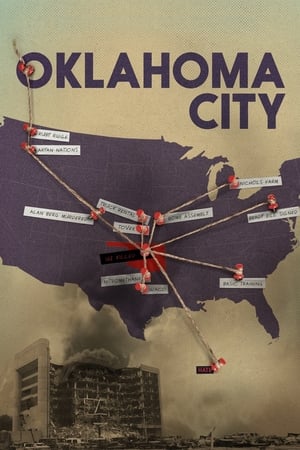 6.9
6.9Oklahoma City(en)
The bombing of the Alfred P. Murrah Federal Building in Oklahoma City in April 1995 is the worst act of domestic terrorism in American history. This documentary explores how a series of deadly encounters between American citizens and federal law enforcement—including the standoffs at Ruby Ridge and Waco—led to it.
 7.5
7.5Why We Fight(en)
Is American foreign policy dominated by the idea of military supremacy? Has the military become too important in American life? Jarecki's shrewd and intelligent polemic would seem to give an affirmative answer to each of these questions.
 7.2
7.2Enron: The Smartest Guys in the Room(en)
A documentary about the Enron corporation, its faulty and corrupt business practices, and how they led to its fall.
 6.0
6.0Theory and Practice: Conversations with Noam Chomsky and Howard Zinn(en)
This timely, bold set of one-on-one interviews presents two of the most venerable figures from the American Left—renowned historian Howard Zinn and linguist and philosopher Noam Chomsky—each reflecting upon his own life and political beliefs. At the age of 88, Howard Zinn reflects upon the Civil Rights and anti–Vietnam War movements, political empires, history, art, activism, and his political stance. Setting forth his personal views, Noam Chomsky explains the evolution of his libertarian socialist ideals, his vision for a future postcapitalist society, the Enlightenment, the state and empire, and the future of the planet.
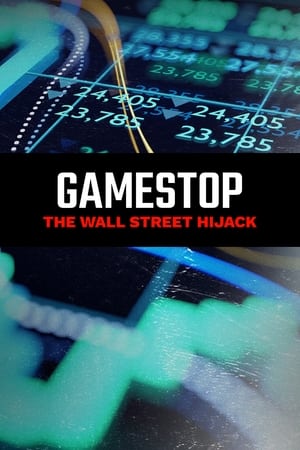 6.2
6.2GameStop: The Wall Street Hijack(en)
A group of young, risk-embracing day traders used social media to organize a massive stock buy-up. Jordan Belfort provides details about the story, exploring how it shook the world's markets.
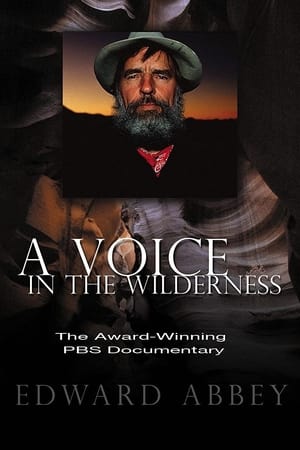 0.0
0.0Edward Abbey: A Voice in the Wilderness(en)
When Edward Abbey died in 1989 at the age of sixty-two, the American West lost one of its most eloquent and passionate advocates. Through his novels, essays, letters and speeches, Edward Abbey consistently voiced the belief that the West was in danger of being developed to death, and that the only solution lay in the preservation of wilderness. Abbey authored twenty-one books in his lifetime, including Desert Solitaire, The Monkey Wrench Gang, The Brave Cowboy, and The Fool's Progress. His comic novel The Monkey Wrench Gang helped inspire a whole generation of environmental activism. A writer in the mold of Twain and Thoreau, Abbey was a larger-than-life figure as big as the West itself.
An Anarchist Life(it)
It’s a model story, an extraordinary adventure, a tale of revolutionary practice and tension, among anarchy and irony, simplicity, curiosity and vitality throughout the whole of Europe, its wars and the social struggles of the 1900s. A tale on how to live all in one breath, responsibly, diving into contradictions, "getting one's hands dirty", and still keeping one's balance between theory and practice.˝
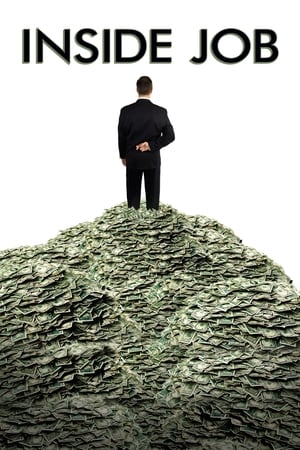 7.7
7.7Inside Job(en)
A film that exposes the shocking truth behind the economic crisis of 2008. The global financial meltdown, at a cost of over $20 trillion, resulted in millions of people losing their homes and jobs. Through extensive research and interviews with major financial insiders, politicians and journalists, Inside Job traces the rise of a rogue industry and unveils the corrosive relationships which have corrupted politics, regulation and academia.
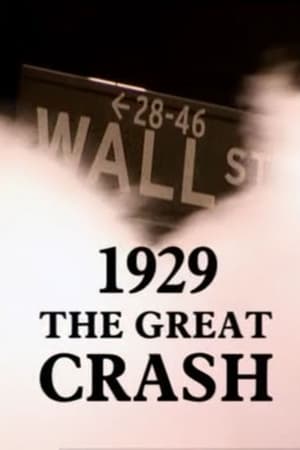 6.7
6.71929: The Great Crash(en)
A documentary exploring the causes of the 1929 Wall Street Crash.Over six terrifying, desperate days in October 1929, shares crashed by a third on the New York Stock Exchange. More than $25 billion in individual wealth was lost. Later, three thousand banks failed, taking people's savings with them. Surviving eyewitnesses describe the biggest financial catastrophe in history.
 7.2
7.2The China Hustle(en)
An unsettling and eye-opening Wall Street horror story about Chinese companies, the American stock market, and the opportunistic greed behind the biggest heist you've never heard of.
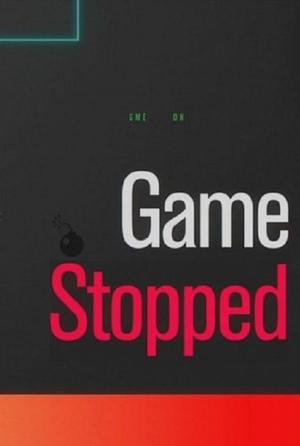 6.3
6.3GameStopped(en)
The first in-depth look at the GameStop cultural phenomenon and its impact on everyday investors. Hear from Mark Cuban, Jim Cramer, Dave Portnoy and Robinhood’s Vlad Tenev on this high-stakes saga.
 6.5
6.5The Flaw(en)
The story of the credit bubble that caused the financial crash. Through interviews with some of the world's leading economists, including housing expert Robert Shiller, Nobel laureate Joseph Stiglitz, and economic historian Louis Hyman, as well as Wall Street insiders and victims of the crash including Ed Andrews - a former economics correspondent for The New York Times who found himself facing foreclosure - and Andrew Luan, once a bond trader at Deutsche Bank now running his own Wall Street tour guide business, the film presents an original and compelling account of the toxic combination of forces that nearly destroyed the world economy.
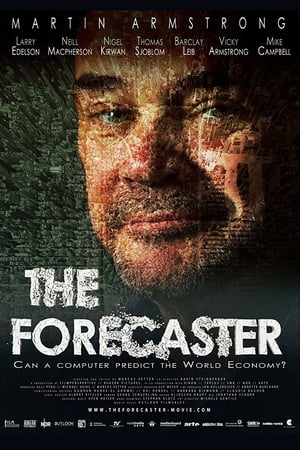 6.8
6.8The Forecaster(en)
MARTIN ARMSTRONG, once a US based trillion dollar financial adviser, used the number pi to predict economic turning points with precision. When some big New York bankers asked him to join the club to help them to take over Russia, he refused to join the manipulation. A few days later the FBI stormed his offices accusing him of a 3 billion dollar Ponzi Scheme - an attempt to stop him talking about the real Ponzi Scheme of debts that the US has build up over the years and which he thinks starts to collapse after October 1, 2015, a mayor pi turning point he is predicting.
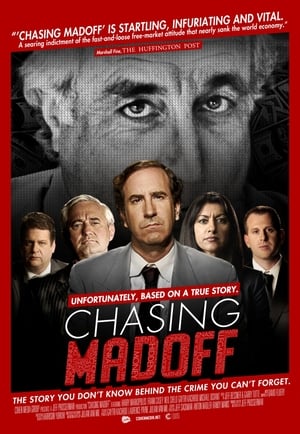 5.6
5.6Chasing Madoff(en)
A look at how one investigator spent ten years trying to expose Bernie Madoff's massive Ponzi scheme that scammed an estimated $18 billion from investors.
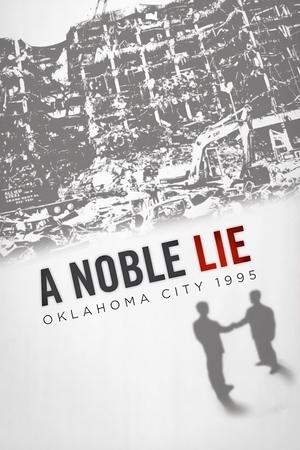 4.8
4.8A Noble Lie: Oklahoma City 1995(en)
A Noble Lie is the culmination of years of research and documentation conducted by independent journalists, scholars, and ordinary citizens. Often risking their personal safety and sanity, they have gathered evidence which threatens to expose the startling reality of what exactly occurred at 9:02 am on April 19, 1995 in Oklahoma City.
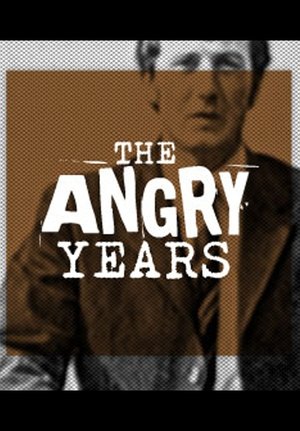 0.0
0.0The Angry Years(en)
1970 marked the start of a bombing campaign by British urban guerrilla revolutionaries The Angry Brigade. Their targets, a bizarre mix, included the Miss World contest, Ford’s motor factory, the home of a conservative cabinet minister and the Biba department store. Following a two year hunt by the newly formed Special Branch, eight suspects were arrested, and following the longest trial in British criminal history, four young graduates were convicted of the bombings. The Angry Years tells the little known story of the Angry Brigade - contributors include Jake Prescott, ex Angry Brigade member, the journalist Paul Foot and the Special Branch detective credited with tracking the Angry Brigade down.
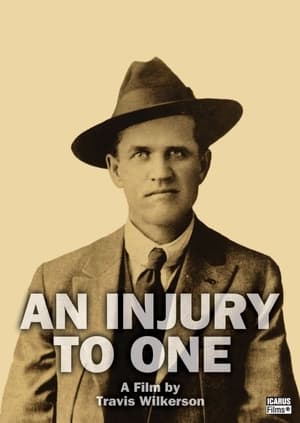 6.5
6.5An Injury to One(en)
An experimental documentary exploring the turn-of-century lynching of union organizer Frank Little in Butte, Montana.
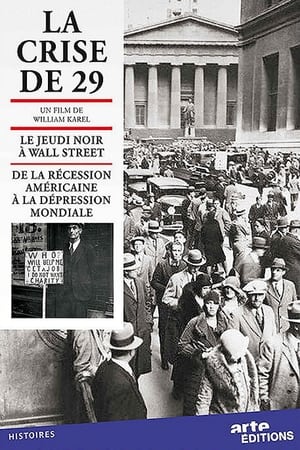 0.0
0.01929(en)
Thursday, October 24 : the Wall Street Stock Exchange crashes, the greatest economic crisis of the 20th century suddenly breaks out. Fueled by the idea that everyone can get rich without limits, it puts a final stop to the euphoria of the 1920s. America is then caught in a devastating cycle which spreads around the world a few months later like a malign infection. Calling on renowned historians and economists, William Karel conducts an incredibly detailed analysis of the economic and financial mechanisms that lead to the crash of Wall Street and then to the Great Depression of the 1930's.
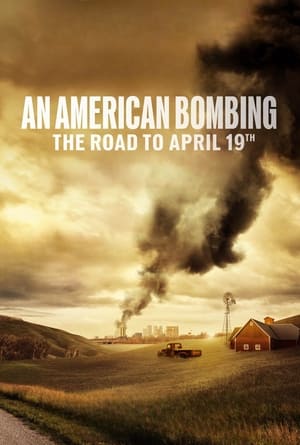 6.6
6.6An American Bombing: The Road to April 19th(en)
This documentary looks at the surge in political violence through the story of the 1995 Oklahoma City bombing, showing the roots of anti-government sentiment and its reverberations today, along with the emotionally charged warnings of those who suffered tragic losses in the deadliest homegrown attack in U.S. history.
